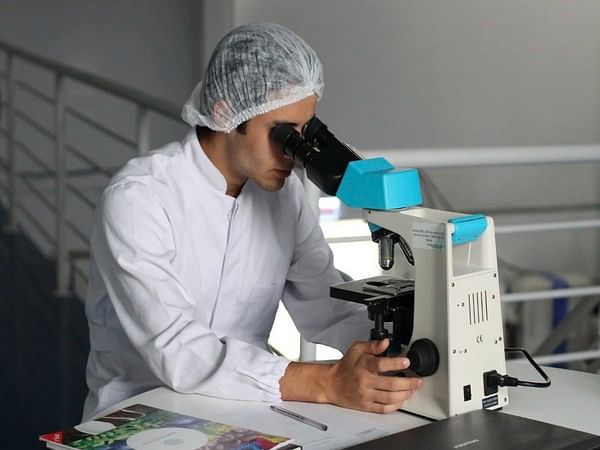Washington [US], July 9 (ANI): Research found that patients receiving bilateral total knee arthroplasty (TKA) have a higher risk of numerous types of problems than comparable individuals undergoing unilateral TKA.
The findings were published in The Journal of Bone & Joint Surgery.
“Patients who underwent simultaneous bilateral TKA were at higher risk of experiencing postoperative complications such as pulmonary embolism, stroke, blood loss anemia, and requiring a transfusion,” according to the report by Nathanael D. Heckmann, MD, and colleagues of Keck School of Medicine of USC, Los Angeles.
TKA is a highly effective treatment for patients with advanced osteoarthritis of the knee, decreasing pain and improving function. When both knees are affected, bilateral TKA offers some advantages over sequential unilateral TKA, including less time in the hospital, a single rehabilitation period, and lower overall costs.
However, some studies have found an increased risk of complications, along with a higher mortality rate, in patients undergoing bilateral TKA. These studies have had important limitations, including a lack of patient matching to account for potential differences between those undergoing bilateral versus unilateral TKA. To address these issues, Dr. Heckmann and colleagues compared complications and mortality in a large, nationally representative group of patients undergoing bilateral versus unilateral TKA.
The analysis included more than 21,000 patients undergoing simultaneous bilateral TKA. These were matched for age, sex, race, and comorbidities with a cohort of 126,000 patients undergoing unilateral TKA. After matching, the two groups had an average age of 64 years with similar comorbidities. As all TKAS were performed between 2015 and 2020, the surgical procedures reflected modern orthopaedic practice.
Patients in the simultaneous bilateral TKA group had increased rates of several types of complications compared with those in the unilateral TKA group, pulmonary embolism (0.27% versus 0.13%), stroke (0.13% versus 0.06%), and respiratory failure (0.46% versus 0.34%).
Patients undergoing bilateral TKA were also at a higher risk of anemia due to blood loss (26.89% versus 14.86%) and were more likely to undergo a blood transfusion (5.23% versus 0.67%). These risks were increased despite the high use of tranexamic acid to reduce blood loss during surgery in both groups.
Patients undergoing bilateral TKA were also more likely to be readmitted to the hospital within 90 days (2.80% versus 2.05%). There was no significant increase in the risk of in-hospital death (0.05% versus 0.04%).
After adjusting for confounders, the risks of pulmonary embolism, stroke, and acute blood loss anemia were approximately doubled in the bilateral TKA group, while the risk of blood transfusion was nearly nine times higher. The risk of readmission within 90 days was 35% higher with bilateral compared with unilateral TKA.
“This study presents the largest matched sample size to date comparing the complications and safety between patients treated with simultaneous bilateral TKA and those treated with unilateral TKA,” Dr. Heckmann and coauthors write. Although there was no significant difference in the rate of in-hospital death, “The risk of mortality following simultaneous bilateral TKA is still a topic of concern.” The researchers emphasize the need for patient counseling and “thorough medical optimization” in patients selected for bilateral TKA. (ANI)
This report is auto-generated from ANI news service. ThePrint holds no responsibility for its content.



